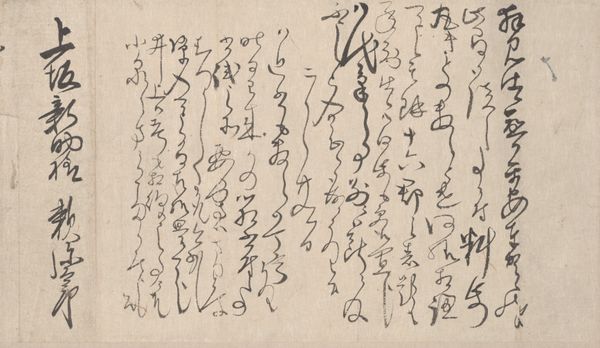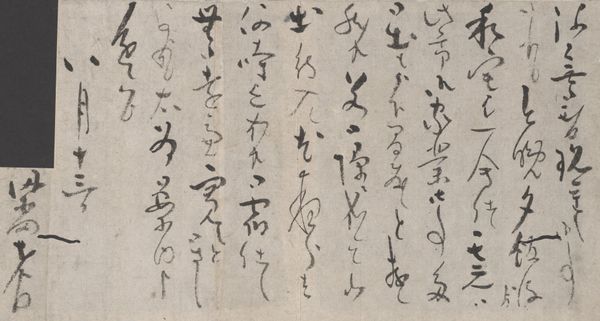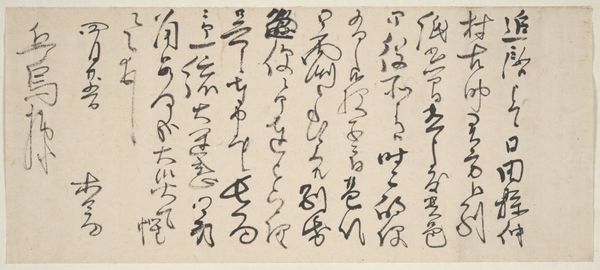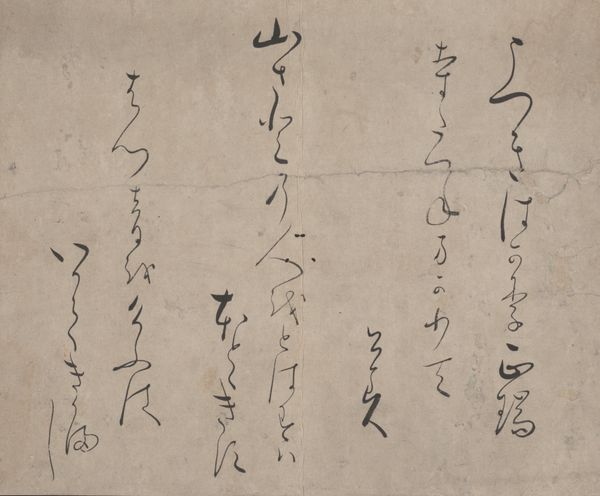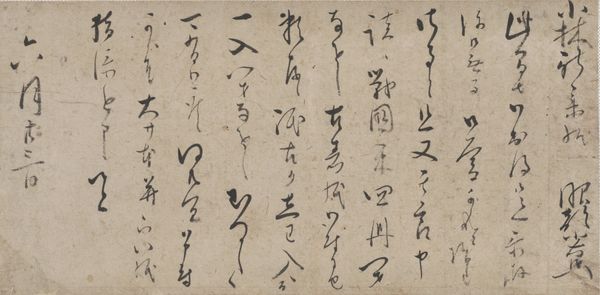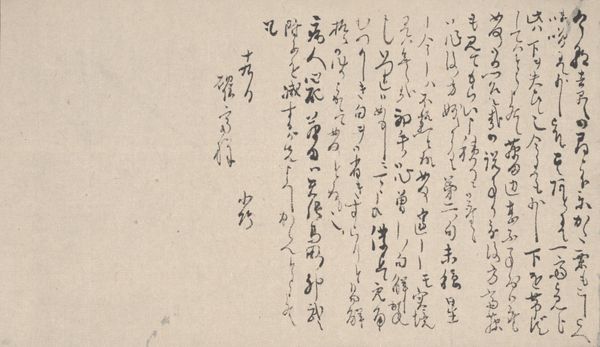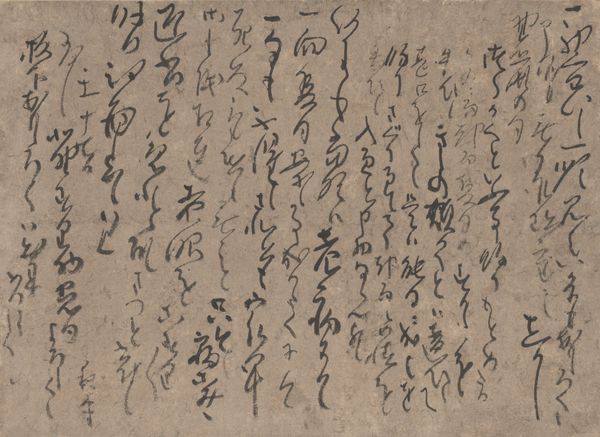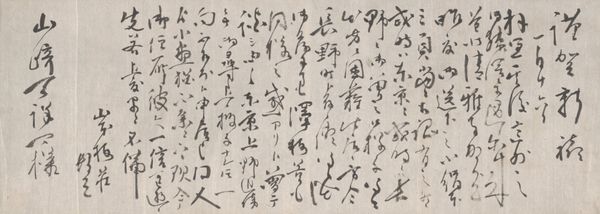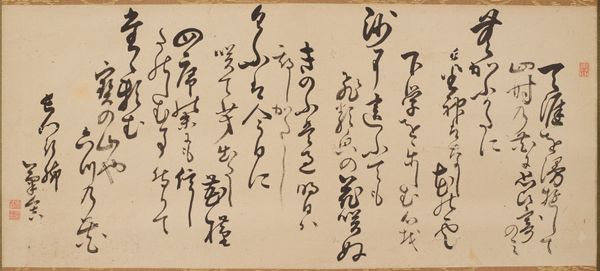
drawing, paper, ink-on-paper, ink
#
drawing
#
calligraphy
#
hand written
#
asian-art
#
paper
#
ink-on-paper
#
ink
#
calligraphic
#
calligraphy
Dimensions: 6 7/16 × 25 1/8 in. (16.35 × 63.82 cm)
Copyright: Public Domain
Editor: So, this is Kakimoto Sesshin's "Letter to Ogane," an ink-on-paper drawing from the 19th century. The characters fill the entire horizontal composition; it's a captivating density! What meaning do you see embedded in this calligraphic form? Curator: For me, it evokes a kind of cultural memory. Each stroke carries a weight of tradition and discipline. The act of writing itself becomes a ritual, imbued with symbolic significance. Look at how the varying thicknesses and the way that the brush has been applied. Editor: So, it’s not just about the content of the letter, but the act of creating it? Curator: Exactly! The characters are like vessels containing not only the immediate message but also layers of emotional and spiritual intention. Think about the cultural context of letter writing at this time; it wasn't merely practical but an art form itself. Is the emotion conveyed more important than the context itself? Editor: I hadn't thought of it that way. It's like the strokes become a visual language of feeling. But what about the choice of recipient, Ogane? Does that add another layer? Curator: Indeed. The relationship between Sesshin and Ogane would also be essential to fully unlocking the work’s emotional tone. Their shared history, cultural background… these aspects become coded into the visual symbolism of the letter itself. How does that inform our own contemporary interpretations? Editor: I see. The artwork transcends the literal and invites a deeper contemplation of cultural memory, and unspoken connections. Thanks for the insights! Curator: And thank you! It is a useful thing to remember to always reflect and connect the artworks to ourselves.
Comments
No comments
Be the first to comment and join the conversation on the ultimate creative platform.
